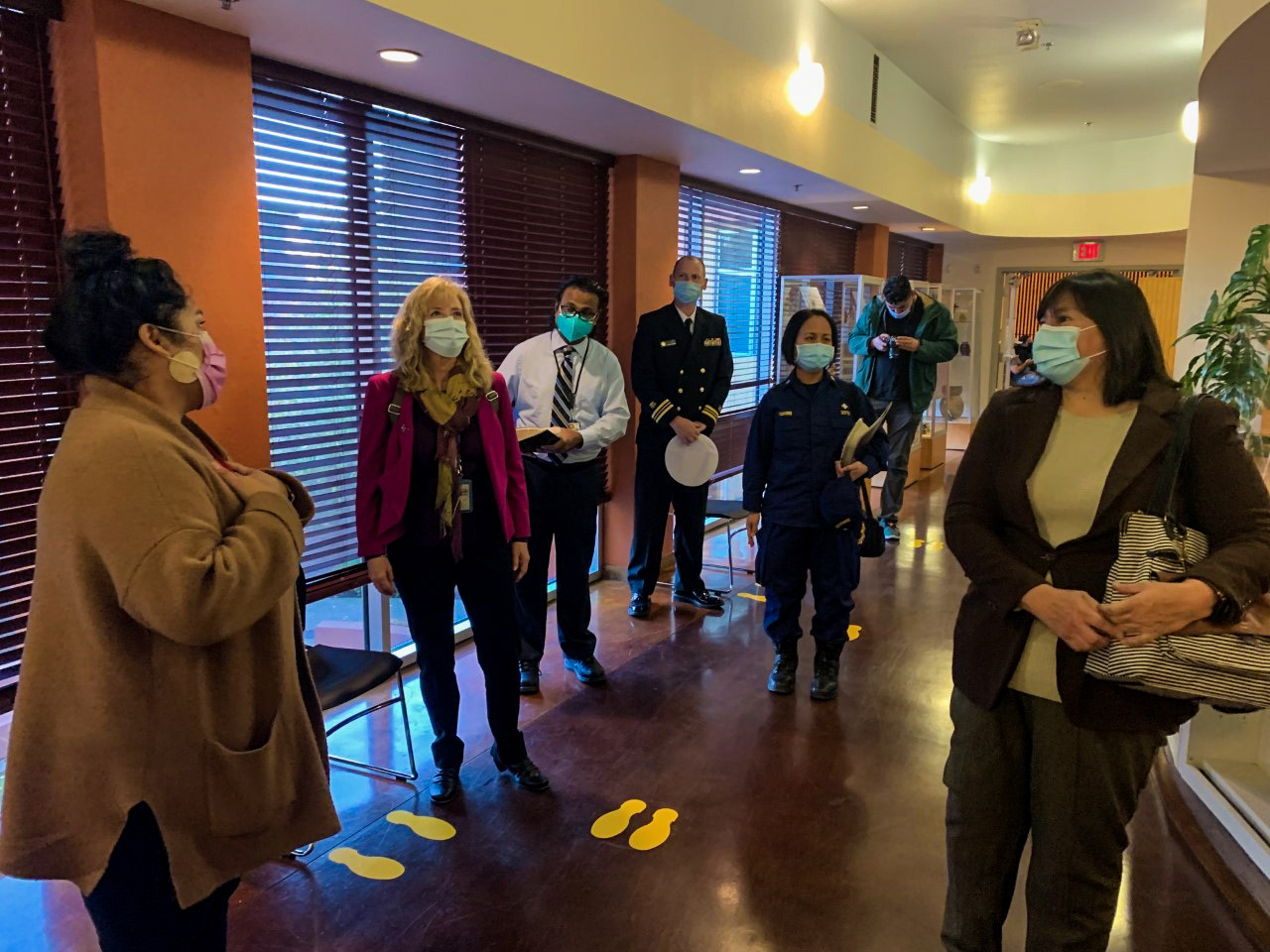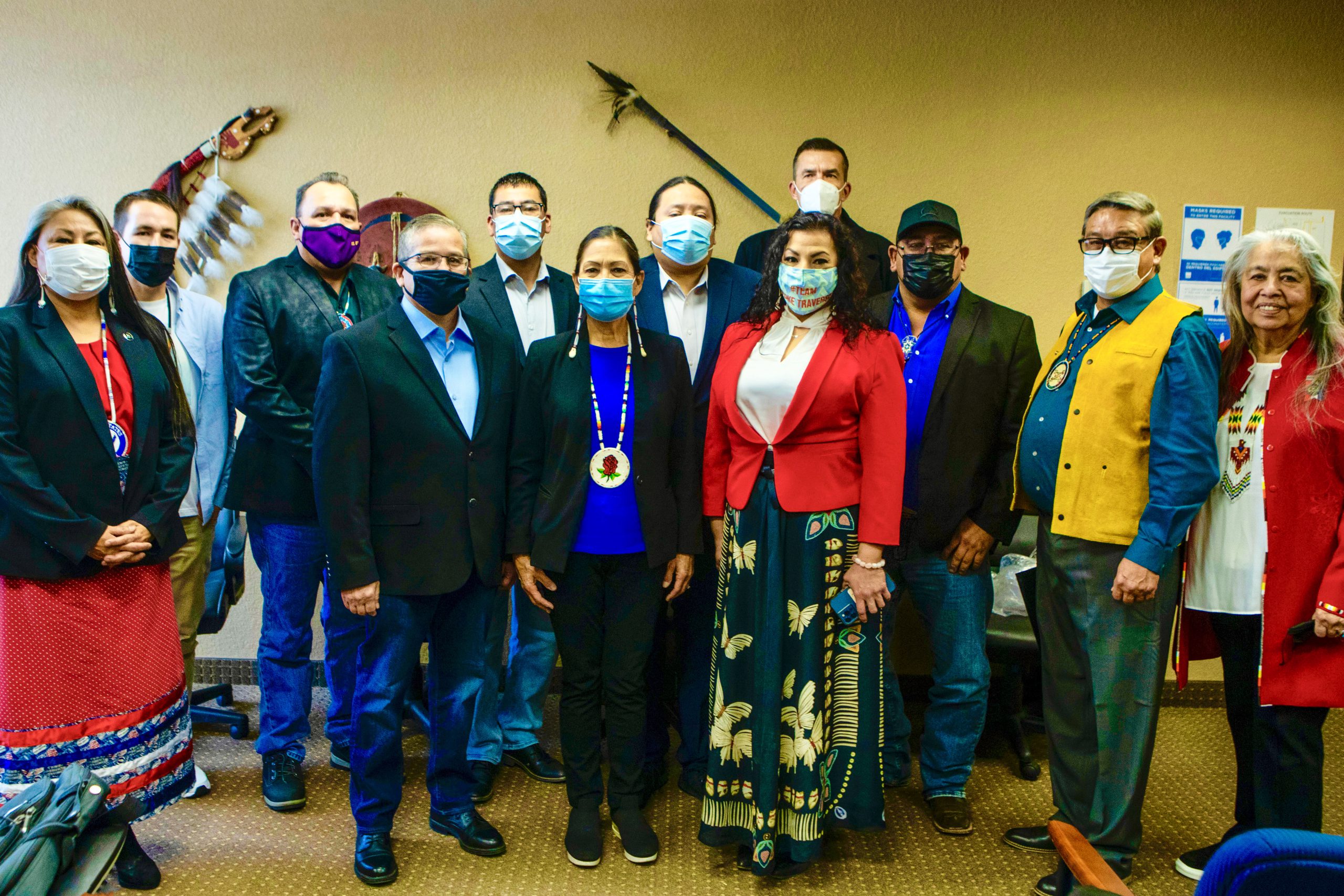Indianz.Com > News > ‘It’s really time’: Speculation grows about leadership at Indian Health Service
‘It’s really time’: Speculation grows about leadership at Indian Health Service
Funding levels and COVID-19 pandemic are among top concerns
Wednesday, January 26, 2022
Indianz.Com
WASHINGTON, D.C. — It’s been a year since Joe Biden took office as president of the United States and he has yet to name a permanent leader of the Indian Health Service, even amid a pandemic that increasingly affects the lives of the first Americans.
But change is coming to the federal agency charged with providing health care to more than 2 million American Indians and Alaska Natives, according to tribal leaders and policy experts. Speculation has grown in recent days, in Indian Country and in the nation’s capital, about a potential announcement for the vacant position at the IHS.
According to several tribal advocates who closely monitor Indian policy developments in Washington, D.C., the White House has singled out a candidate for the job of IHS director.
“We understand there is a person undergoing vetting,” said one Indian health advocate, speaking on the condition of anonymity because of the uncertain nature of the situation.
The timing of an announcement for the IHS position, though, is up for significant debate. One tribal health leader expected the White House to make an announcement as soon as this week, a year after President Biden asked the prior director to step down. But another Indian policy expert with connections to the Biden administration believes word from Washington might not come until next week, as members of the U.S. Senate return to work. The IHS director must be confirmed by the chamber, which is led by Democrats. The identity of the potential IHS nominee is also a huge unknown. Although seven people independently confirmed increased chatter about the position in the last week, all said the White House was being extremely tight-lipped about the next steps in the process. For Dr. Aaron Payment, the chairperson of the Sault Ste. Marie Tribe of Chippewa Indians, an announcement couldn’t come at a more critical time. Pointing to the disproportionate impacts of COVID-19 in Indian Country, he said the Biden administration must demonstrate its commitment to the trust and treaty responsibility. “We’re in the middle of a pandemic,” Payment said in an interview with Indianz.Com. “Some of the impacts on Indian Country are worse than in other racial and ethnic populations.”Cases of #COVID19 continue to surge across Indian Country, according to Indian Health Service.
— indianz.com (@indianz) January 25, 2022
Since January 1, 2022, the 7-day positivity rate @IHSgov has increased by 97 percent.
And in some areas, nearly every other person is testing positive.https://t.co/8JBPs0vEZV
The Indian Health Service referred a question about a potential nominee to the Department of Health and Human Services. An email inquiry placed with HHS in the early afternoon on Wednesday had not yet been answered at the time of this posting. The IHS is currently led by Elizabeth Fowler, a citizen of the Comanche Nation. In her role as “acting” director over the past year, she has made COVID-19 a top priority. “As you’re well aware, COVID-19 hit our Native communities hard,” Fowler said during a visit to the the Native American Health Center in Oakland, California, on December 7. “At the height of the pandemic American Indians and Alaska Natives had infection rates over 3.5 times higher than non-Hispanic whites, were over four times more likely to be hospitalized as a result of COVID-19, and had higher rates of mortality at younger ages than non-Hispanic whites. “The pandemic highlighted the need for comprehensive, culturally appropriate personal and public health services that are available and accessible to all American Indian and Alaska Native people,” Fowler said.IHS Acting Deputy Director Elizabeth Fowler visited the Northern Valley Indian Health Clinic and the Native American Health Center in California this week to encourage vaccinations & booster shots, and to highlight the President’s new actions to protect against #COVID19 variants. pic.twitter.com/Mu7GoQ0mWj
— IndianHealthService (@IHSgov) December 9, 2021

Related Stories
Indian Health Service finalizes rule for Buy Indian Act (January 13, 2022)Indian Country starts off new year with surge in COVID-19 cases (January 6, 2022)
Rosebud Sioux Tribe thanks Biden administration for honoring victory in treaty rights case (December 20, 2021)
Great Plains Tribes: Indian health care is a treaty right (December 20, 2021)
‘No one else needs to die’: Biden administration faces another test of commitment to Indian Country (December 17, 2021)
Cronkite News: Navajo Nation continues fight against COVID-19 pandemic (December 14, 2021)
Harold Frazier: Indian Country demands action, not words, from White House (November 18, 2021)
‘A long journey’: Indian Country continues to suffer from COVID-19 (November 9, 2021)
Indian Health Service COVID-19 Media Event (November 9, 2021)
Search
Filed Under
Tags
More Headlines
Native America Calling: A sample of Native Guitars Tour 2024
Native America Calling: How Native literature is changing the mainstream narrative
Native America Calling: No ordinary animal
Native America Calling: Safeguards on Artificial Intelligence
NAFOA: 5 Things You Need to Know this Week
Chuck Hoskin: Cherokee Nation takes the lead for our environment
Native America Calling: Earth Day assessment for Native peoples
Cronkite News: Gathering addresses ‘epidemic’ among Native people
VIDEO: Cody Desautel on tribes and federal forest management
AUDIO: Legislative Hearing on Discussion Draft of Forest Management Bill
Native America Calling: Remembering the 1974 Navajo border town murders
Native America Calling: Can the right approach close the Native immunization gap?
Cronkite News: Long COVID cases remain high in Arizona
Native America Calling: Eyes in the sky for development, public safety, and recreation
Native America Calling: Three new films offer diverse views of Native life
More Headlines
Native America Calling: How Native literature is changing the mainstream narrative
Native America Calling: No ordinary animal
Native America Calling: Safeguards on Artificial Intelligence
NAFOA: 5 Things You Need to Know this Week
Chuck Hoskin: Cherokee Nation takes the lead for our environment
Native America Calling: Earth Day assessment for Native peoples
Cronkite News: Gathering addresses ‘epidemic’ among Native people
VIDEO: Cody Desautel on tribes and federal forest management
AUDIO: Legislative Hearing on Discussion Draft of Forest Management Bill
Native America Calling: Remembering the 1974 Navajo border town murders
Native America Calling: Can the right approach close the Native immunization gap?
Cronkite News: Long COVID cases remain high in Arizona
Native America Calling: Eyes in the sky for development, public safety, and recreation
Native America Calling: Three new films offer diverse views of Native life
More Headlines
